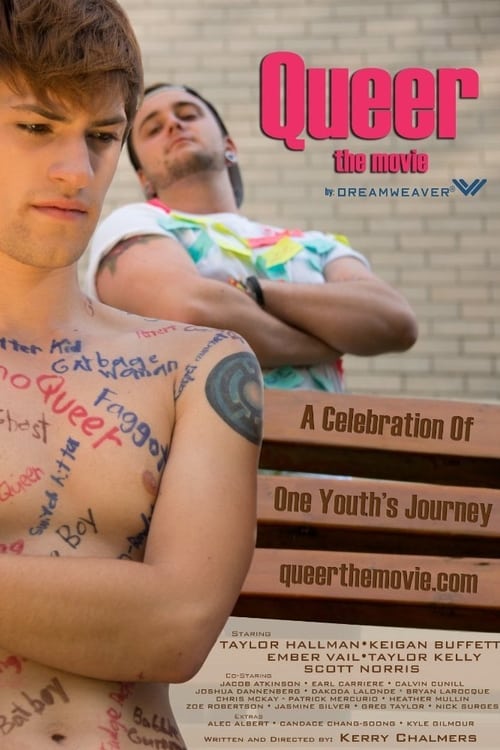Download Queer (2015) Movies Without Downloading Online Stream
Queer Movies Movie Full HD 720p Without Downloading Stream Online
Storyline Queer
Trapped in a nightmare world full of homophobic bullies, people who want to cure him, and a teacher who seems determined to make his life miserable, our closeted queer youth is forced to come face-to-face with his 'deviant' sexual ways.Movie details
Title : QueerRelease : 2015-07-07
Genre :
Runtime : 87
Company :
Rating :
5 out of 10 From 1 Users
Homepage : Homepage Movie
Trailer : Video Trailer
Casts of Queer
Find More About Queer
Use of the word queer as referring and relating to sexual orientation, and, more recently, to gender identity, has changed dramatically since the 1980s. Formerly used only as a strongly pejorative term, queer is now commonly used by some as a positive self-descriptor.
Queer is an umbrella term for sexual and gender minorities who are not heterosexual or are not cisgender. Originally meaning "strange" or "peculiar", queer came to be used pejoratively against those with same-sex desires or relationships in the late 19th century.
Queer is an example of a word undergoing this process. For decades queer was used as a derogatory adjective for gays and lesbians, but in the 1980s the term began to be used by gay and lesbian activists as a term of self-identification.
Queer can now be used to describe homosexuals, bisexuals, and transgendered people. In scholarly studies the word queer is also used to describe those who practice unconventional sex (e.g. bondage, etc.), therefore even heterosexuals can sometimes be defined as queer. 1. Your brother is a really queer guy.
Queer is recorded in Scottish in the 16 th century, when it meant “strange” or “eccentric,” possibly related to the German quer (“perverse” or “odd”). At least by the late 1800s, queer was deployed as a derogatory term for an effeminate or gay men.
Today, the word “queer” is a way for us to create space for those who’ve been othered by the LGBTQ+ rights movement, by social norms and customs, and by outdated notions of gender. Depending on who you ask, there are a million conflicting meanings for the word. Many still see it as a degrading slur. Many others embrace it with pride.
Last week, I visited the Leslie-Lohman Museum in New York City to view On Our Backs: The Revolutionary Art of Queer Sex Work. This exhibit lifts up the deep interconnectedness between queer sex work, queer sex workers, and activism.
As is the case with many identifying labels, being queer can mean different things to different people; for example, when I refer to "being queer" myself, I am referring to being part of the...
Queer is an umbrella term for sexual and gender minorities who are not heterosexual or are not cisgender. Originally meaning "strange" or "peculiar", queer came to be used pejoratively against those with same-sex desires or relationships in the late 19th century.
Queer is an example of a word undergoing this process. For decades queer was used as a derogatory adjective for gays and lesbians, but in the 1980s the term began to be used by gay and lesbian activists as a term of self-identification.
Queer can now be used to describe homosexuals, bisexuals, and transgendered people. In scholarly studies the word queer is also used to describe those who practice unconventional sex (e.g. bondage, etc.), therefore even heterosexuals can sometimes be defined as queer. 1. Your brother is a really queer guy.
Queer is recorded in Scottish in the 16 th century, when it meant “strange” or “eccentric,” possibly related to the German quer (“perverse” or “odd”). At least by the late 1800s, queer was deployed as a derogatory term for an effeminate or gay men.
Today, the word “queer” is a way for us to create space for those who’ve been othered by the LGBTQ+ rights movement, by social norms and customs, and by outdated notions of gender. Depending on who you ask, there are a million conflicting meanings for the word. Many still see it as a degrading slur. Many others embrace it with pride.
Last week, I visited the Leslie-Lohman Museum in New York City to view On Our Backs: The Revolutionary Art of Queer Sex Work. This exhibit lifts up the deep interconnectedness between queer sex work, queer sex workers, and activism.
As is the case with many identifying labels, being queer can mean different things to different people; for example, when I refer to "being queer" myself, I am referring to being part of the...






No comments